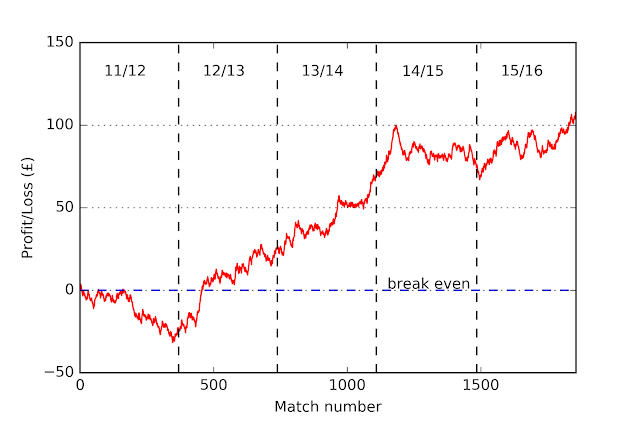Leagues within a League: How the EPL Table Evolves

We’re nearly a quarter of the way through the EPL season and the league already has a familiar feel to it. Manchester City are top, Arsenal are above Spurs, and Sunderland anchor the table having failed to win a single game so far. There is clearly a lot of football still to be played, but does the table already resemble how it’ll look come the end of May? Conventional wisdom tells us that the turn of the year is a crucial period. By the beginning of January we are supposed to have a good idea of how things are shaping up. In 9 of the last 20 EPL seasons, the team that was top at January went on to win the league. 56% of teams in the bottom three on new year’s day will be relegated. However, you get pretty much the same results if you measure these stats at the beginning of December or the beginning of February, so perhaps we don’t learn that much over the Christmas period after all. In this post I’m going to look back over the last 20 seasons to investigate how the league table ac...

